Dupa plasarea solicitării de comandă, in sectiunea Istoric puteti vedea cate solicitări de comandă mai avem de procesat inaintea dumneavoastra
Program de lucru: Luni - Vineri 9:00 - 18:00, pauza 13:00 - 14:00.
Se efectueaza lucrari de mentenanta la site si pot aparea erori. In cazul in care intampinati erori va rugam sa reincercati mai tarziu.
Ridicarea personala este disponibila pentru comenzile achitate in avans. Se pot ridica dupa ce sunt pregatite.
Niciun produs
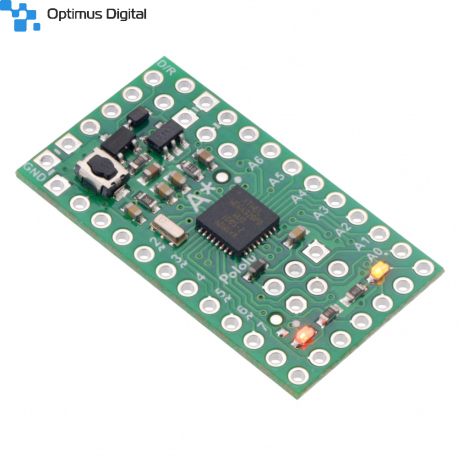 Mărește
Mărește
Placa de Dezvoltare A-Star 328PB Micro - 5V, 20MHz
0104110000061829
Produs nou
Această placă de dezvoltare are la bază microcontroller-ul AVR ATmega328PB, dispune de numeroase porturi I/O, porturi PWM și analogice. Dimensiunile sale sunt foarte mici, 1.3 inch x 0.7 inch.
Acest produs nu mai este in stoc
- Scrie o recenzie
- Elimina acest produs din lista mea de favorite.
- Adauga acest produs la lista mea de favorite.
- Imprimă
Informații
Descriere și specificații:
Placa are 24 de pini digitali I/O, dintre care 9 cu ieșiri PWM și 8 care pot funcționa ca intrări analogice. Este compatibilă cu bootloader-ul Arduino IDE și se poate programa cu un adaptor USB-serial și prin pinii ISP cu un programator AVR. Frecvența sa este de 20MHz și are un regulator de 5V ca poate fi alimentat cu tensiuni între 5.5V și 15V.
- Dimensiuni: 1.3″ × 0.7″;
- Microcontroller programabil ATmega328PB AVR:
- 32 KB memorie flash (0.5 KB folosită de bootloader, 31.5 KB disponibilă);
- 2 KB memorie SRAM;
- 1 KB memorie EEPROM;
- Toate liniile I/O ale ATmega328PB disponibile:
- 19 pini I/O;
- 5 pini I/O adiționali;
- 9 pini poti fi configurați cu ieșiri PWM;
- 8 pini pot fi configurați ca intrări analogice;
- Header TTL 6-pin TTL serial pentru programare cu adaptor USB-serial;
- Header 6 pin ISP pentru programare cu programator AVR;
- LED pentru power și LED controlabil de utilizator;
- Alimentare de la adaptorul USB-serial sau cu tensiuni între 5.5V și 15V;
- Protecție la inversarea polarizării la pinul BAT+.
Recenzii
Clienții care au cumpărat acest produs au mai cumpărat:
-
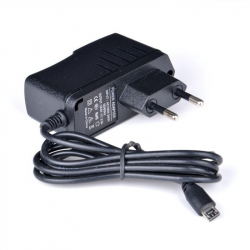
Alimentator...
Alimentator Plusivo de 5 V, 3 A cu Mufă Micro...
$7.20
-
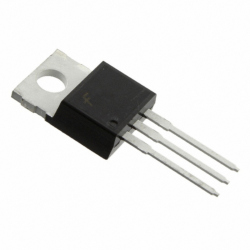
L7812 -...
L7812 - Stabilizator de Tensiune de 12 V în...
$0.60
-
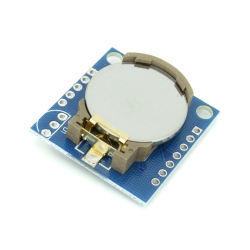
Modul Ceas...
Modul ceas în timp real bazat pe circuitul...
$2.28
-
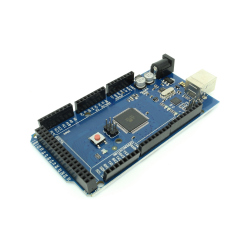
MEGA 2560 R3...
Placa ideala pentru proiecte creative in...
$22.17
-
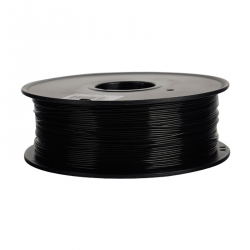
Filament...
PLA printează mai uşor şi are un punct de...
$16.80
-
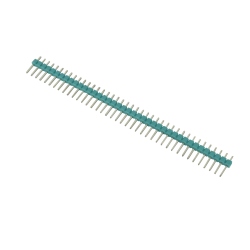
$0.24
-
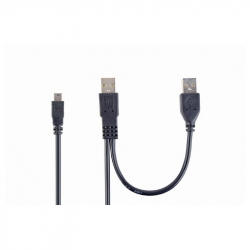
Cablu Y...
Cablu Y Alimentare USB 2.0 LA Mini USB-B 0.9M
$1.56
-
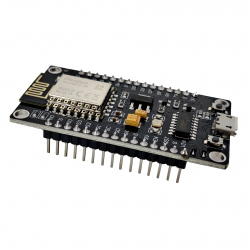
Placa de...
Placa de dezvoltate WiFi bazată pe ESP8266, un...
$4.56
-
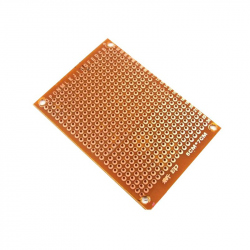
Cablaj de...
Ideal test wiring for creating prototype...
$0.91
-
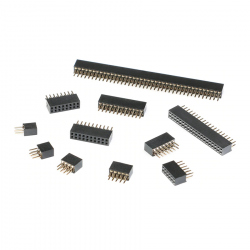
Header de...
Header de Pini Mamă de 1.27 mm 2 x 4p
$0.04












